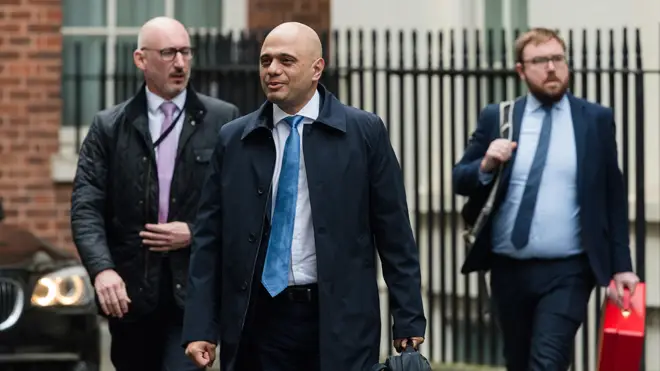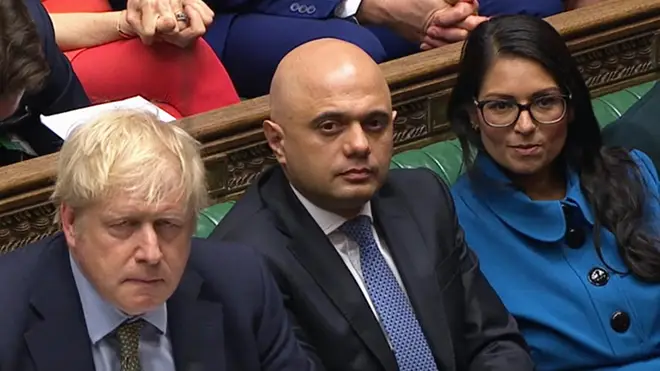
Shelagh Fogarty 1pm - 4pm
18 January 2020, 09:45 | Updated: 18 January 2020, 13:17

Chancellor Sajid Javid has admitted that not all UK businesses will end up benefitting from Brexit.
Speaking to the Financial Times (FT), he said: “There will be an impact on business one way or the other, some will benefit, some won’t."
The types of businesses that will be hardest-hit will be those with complex supply chains that spread across Europe, including automotive industries, aerospace and some food firms, among others.
Mr Javid also warned manufacturing bosses that there will be no alignment with EU regulations once Britain’s exit from the EU has been made official at 11pm on January 31.
He said that the Treasury would not be lending support to firms that favour EU rules, because they have been given three years to prepare for the transition.

"There will not be alignment, we will not be a ruletaker, we will not be in the single market and we will not be in the customs union - and we will do this by the end of the year," Mr Javid said.
"We're ... talking about companies that have known since 2016 that we are leaving the EU."
READ MORE: Countdown clock to be projected on to Downing Street to mark 'Brexit Day'
The government has not yet agreed on its future trading relationship with the EU. The government plans to set this up during an 11-month transition period which begins after the UK leaves.
The Chancellor’s announcement sparked business to warn of price rises.
Dame Carolyn Fairbairn, director of the Confederation of British Industry, said: Business welcomes the Chancellor's ambitious vision for the economy and recognises there are areas where the UK can benefit from its future right to diverge from EU regulation.
"However we urge Government not to treat this right as an obligation to diverge.
"For some firms, divergence brings value, but for many others, alignment supports jobs and competitiveness - particularly in some of the most deprived regions of the UK."
The Society of Motor Manufacturers and Traders (SMMT) said its priority was to avoid "expensive tariffs and other behind-the-border barriers" between the UK and EU that limit market access.
Its chief executive Mike Hawes added: "Both sides want a thriving sector and we want to work with Government to help reach a mutually beneficial arrangement on regulation that safeguards UK manufacturing and consumer choice by allowing vehicles built in the UK to be sold in the EU and vice versa without additional requirements that would add billions to the cost of development.
"It is important, therefore, that we have early sight of the details of the Government's ambitions so we can evaluate any impact on our competitiveness and the future of volume manufacturing in the UK."
The Food and Drink Federation (FDF) said that no regulatory alignment with the EU after Brexit could lead to price rises.
Its chief operating officer Tim Rycroft added: "Food and drink manufacturers will be deeply concerned by the Chancellor's suggestion that there will not be regulatory alignment with the EU post-Brexit.
"This represents the death knell for frictionless trade.
"It will mean businesses will have to adjust to costly new checks, processes and procedures, that will act as a barrier to frictionless trade with the EU and may well result in price rises."
Mr Javid said he believed the UK economy would ultimately continue to thrive in the long-term.
"Once we've got this agreement in place with our European friends, we will continue to be one of the most successful economies on Earth," he said.
Mr Javid will have the opportunity to sell his vision for Britain's economy post-Brexit when he travels to Davos next week for the World Economic Forum.
He also hinted that there might be tax rises in the March Budget or autumn, telling the FT that he was determined to take the "hard decisions you need to sometimes, especially at the start of a new government".
But when asked specifically about taxation he said: "You'll have to wait for the Budget."
In November, the Bank of England said Brexit and a weakened global economy would knock 1 per cent of UK growth over the next three years.